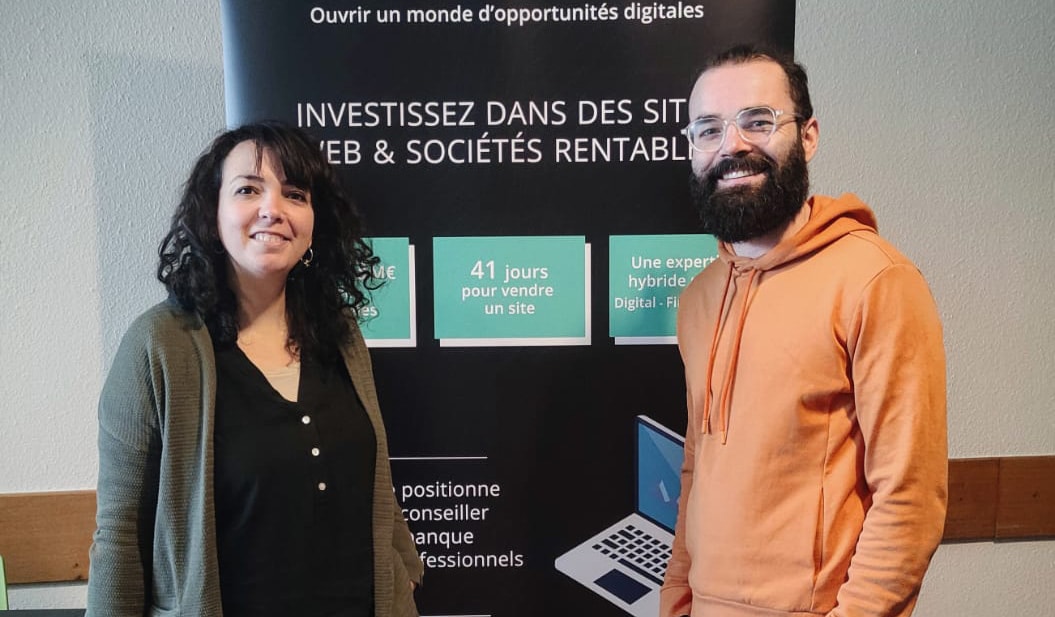In 2017, San Francisco couple Emma Lawler and Philip Thomas wanted to be digital nomads.
“Lots of people were leaving for more ‘lifestyle places’ like Austin,” Lawler said. “We both wanted to do that and still have access to high-quality work.”
Their solution: Build Moonlight, a marketplace where developers could find well-paid, part-time remote work, and where companies could find developers.
They started building the company as they lived throughout the world in places like Mexico City, Buenos Aires, and Barcelona, moving every three months or so. Along the way, they grew their developer member base in part by hosting weekly meetups for tech workers and launching a newsletter.
By 2020, Moonlight had about 10,000 developers and a couple thousand companies signed up and booking work through its marketplace.
And then the pandemic hit. In a tough fundraising climate, they decided it was time for an exit. In March 2020, they sold for an undisclosed sum to PullRequest, a startup offering code review services.
How Moonlight grew its marketplace at ground level
The couple bootstrapped the company as they lived the nomad lifestyle. Lawler handled business development, and Thomas focused on building the product.
“We chose cities where there was already a community of software development or startups, but that were not yet known for technology,” Lawler said. “There were already really great software developers in those cities, trained at great universities or big tech companies – but they didn’t have easy access to finding new software jobs or doing contract work with startups in Silicon Valley.”
They met a lot of people along the way as they hosted the tech meetups.
“One of the bigger problems with remote work was the loss of community,” Lawler said. This low-tech strategy for building an online marketplace was labor-intensive, she said, but worth it. “It seems like you’re just losing money, but it’s something that people really remember when you do things that aren’t super scalable.”
By 2019, they were back in the United States. To scale, they raised a pre-seed round of venture capital funding for an undisclosed amount. “Because I had been based in the Bay Area and had worked at several startups, it was easier to get connected, but honestly, fundraising for the first time is really hard,” Lawler said. “It was a great learning experience.”
At this point, they had a team of five employees and three contractors. Moonlight provided tools for remote work communication, human resources, and payments in an effort to keep companies from canceling their subscriptions once they’d found a developer to work with.
Initially, Moonlight had charged companies a 10-15% fee on top of payments made to developers. By this point, they had moved to a subscription model. Companies could pay a flat fee to access the platform, without Moonlight taking a per-hour cut.
Ultimately, the platform made about $10,000 a month in subscription revenue, Lawler said. They also collected $55,000 a month in pass-through revenue that went directly to developers. This was the business model that led to the acquisition.
A pandemic decision: Why they sold Moonlight
In 2020, when the pandemic hit, Lawler and Thomas were living in New York City.
“It was a weird time to be fundraising,” Lawler said. They knew they either needed to raise another round of funding or figure out an exit, and after talking with their investors, they decided to pursue an acquisition.
“The biggest thing for us was we had all these remote workers on the platform, and especially during that time it was scary for contractors,” Lawler said. She said their top priority was making sure their members continued to have access to work on the platform.
One of their investors introduced them to another startup, PullRequest, which offers code review as a service, and they struck a deal.
The founder of PullRequest, Lyal Avery, told TechCrunch that Moonlight’s developer network could help fix common coding errors, moving PullRequest beyond just identifying the errors. He said the acquisition would also help to train their machine learning tools to fix common errors automatically, ultimately helping human developers work more efficiently.
The acquisition process went pretty smoothly because they had institutional investors, who required clean metrics and reporting, Lawler said.
“We had real revenue, you could see exactly what was happening, and our data was all very buttoned up,” she said.
Lawler had also previously worked as an early-stage employee at FitStar, which was acquired by FitBit. “I had gone through that process as an employee, and that’s how I had the confidence to do all this,” she said. “Because I had seen it before, it felt very familiar.”
The deal was structured as a combination of cash and equity, Lawler said, though the sale price was not disclosed. She and Thomas stayed on as employees for a few months to help with the transition.
“Going from being a founder to an employee at another company is really weird,” she said. “We had spent three years building this business, having full autonomy, then went back to having a boss and someone else’s milestones to consider.”
2 new startups: The Contraption Company and Velvet
Post-sale, she and Thomas are both pursuing new (separate) entrepreneurial ventures.
Being romantic partners and business partners “was not something I would probably do again,” Lawler said. “It was too many things all at once.” However, she said, “We are still together, surprisingly. So something worked about it.”
Thomas is working on a product studio, The Contraption Company, that builds software tools for online work.
Lawler has worked at The Skimm, completed an MBA at Chicago Booth, and founded a new startup, Velvet, a database service to unify customer data and ship personalized features. She raised venture capital for Velvet in March 2023 and has been working on it full time since then. “It was so much easier to get funding the second time around,” she said.
As a serial entrepreneur, Lawler clearly loves building something from scratch.
“The only thing that moves your business forward is putting one foot in front of the other and moving it forward. No one else is going to do it for you,” she said. “It can be really fulfilling, but it’s hard to stay mentally fit in that kind of scenario. Time-blocking, staying organized, and setting really ambitious goals is what works.”


